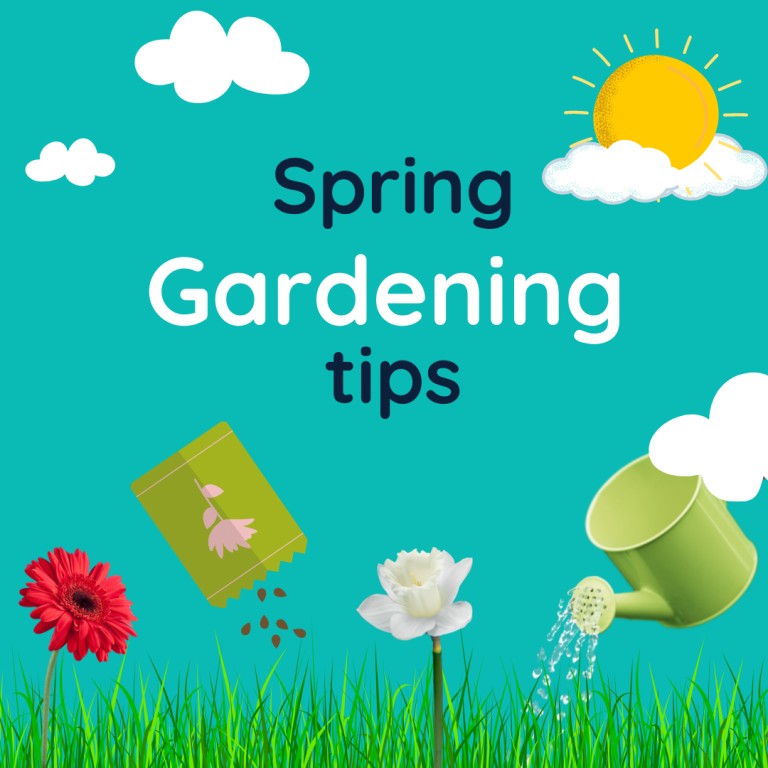


As we’re coming towards the end of March, the sun is finally starting to creep out of its dungeon! You know when you see the daffodils out and about that spring is coming upon us. Mother’s Day cards and easter eggs start being stocked up in all the shops – perhaps you’re starting to think to yourself; maybe now is the time to start clearing up our garden from the winter damage and all the UK storms that we’ve had?
Here you’ll find some brilliant gardening tips to refresh your garden in time so that your garden can be the main event for a social spring and summer!
1. Sowing Flowers
When you’re wanting quick and vibrant colours, consider sowing some annuals such as poppies and cornflowers. You can also buy ‘seed bombs’ which are ethically packaged flower seeds you throw into a patch of grass and/or soil, and they sprout wherever they land and root. The good thing about poppies and seed bombs as well is that they only need to be sown 3cm under soil and require minimal watering (around two to three times a week) and you’ll never need to re-sow, as these clever little plants not only add a vibrant aesthetic to your garden, but they also know what time to bloom year after year!
2. Attracting wildlife
When it comes to gardening, you’re working with boundless, sustainable, regrow able materials, most of which can be used to help to conserve wildlife as well. If you’ve got spare seeds lying around you don’t plan to use, make some fat balls for the birds during wintertime, or pop it into an outdoor birdfeeder and let nature do its thing. Bee hotels are another great idea (similar to that of bird houses) any hedge trimmings or excess wood you may have, leave it for badgers and squirrels to nibble on. Being a zero-waste gardener is the best kind!
3. Free Fruit and Veg
One of many perks to gardening, is a lot of what you plant can end up being mistakenly edible! Burdock is a plant that grows most commonly among houses with bushes surrounding them, and people hardly ever realise they’re edible! Start sowing some edible flowers, and even some vegetable plants – you'll thank yourself when it comes to the summer months, and you’ve got endless amount of salad and fruits to work with! They also make your garden colourful and fresh – and even aid in cleaning the air!
4. Timing it right
Knowing how long your plants take to sprout, thicken and grow is an essential part to your gardening process that you’ll need to know for an all-year-round flow of blooming and resting, so that when it comes to the inevitable annual spring clean-up, half the work is done for you, as your daffodils, poppies and so on will know exactly when to bloom. Some flowers take days to sprout and bloom, and others take months – but doing your research and knowing the timing of each plant will ensure you have an easier time of doing your gardening!
5. Weeding
Finally, knowing when to weed and when not to weed is a good thing to remember, as plants are a part of their own life cycle, and some ‘weeds’ are often helping hands to many other forms of life. For example, if you have weeds growing out of concrete, this is a pesky situation when trying to beautify your garden. But make sure you are only weeding when you put down de-weeding chemicals and ensure that your de-weeding chemicals are animal-safe and are safely separated from your wanted plants! Yellow weeds are very nutritious for bees, so please try to make sure that you wait until your dandelions have turned white before de-weeding them.
If you want to see some other ways to maintain your property, why check out this handy little blogpost on maintenance that will increase your home’s value.